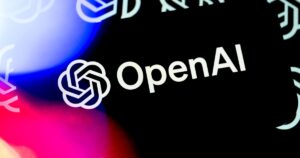Former Employees Urge Court to Keep OpenAI Nonprofit

OpenAI’s Nonprofit Status: Insights from Former Employees
Introduction to OpenAI’s Mission
OpenAI was founded in December 2015 with a clear mission: to ensure that artificial general intelligence (AGI) benefits all of humanity. As a nonprofit organization, OpenAI aimed to promote and develop friendly AI technologies while remaining committed to ethical guidelines. This focus on public benefit was a significant aspect of its early identity, fostering an environment where innovation and responsibility could coexist.
The Shift Toward Commercialization
Over recent years, OpenAI has made notable changes, particularly in its operational structure. The decision to reshape its organization into a "capped-profit" model raised eyebrows and concerns among various stakeholders. This model allows investors to earn a return on their investments, but it limits those profits to ensure that the majority of the benefits of AI advancements are available for the broader public good.
Concerns Raised by Former Employees
Several former employees have voiced their opinions regarding this shift, particularly as it heads into legal discussions. They argue that the original nonprofit framework is essential to maintaining OpenAI’s foundational goals. Some of their key concerns include:
- Loss of Ethical Focus: There is apprehension that the shift to a for-profit model may lead to a prioritization of financial gains over public welfare.
- Transparency Issues: A nonprofit structure often promotes greater transparency and accountability. Former employees worry that commercial interests could compromise these values.
- Long-Term Impact on AI Development: The fear exists that a profit-driven approach might prioritize short-term profits at the expense of long-term, more responsible AI innovations.
The Legal Proceedings
As discussions around OpenAI’s future unfold, former employees have taken their concerns to court. They argue for the nonprofit model, emphasizing that returning to the original structure is crucial for ensuring OpenAI remains committed to its mission. The court proceedings will address vital questions surrounding governance, profit distribution, and the organization’s overarching goals.
Key Points in the Legal Discussion
- Mission Alignment: Is OpenAI still aligned with its founding mission to benefit humanity if profits become the primary focus?
- Investor Influence: How much influence should investors have on decision-making processes when the potential for profit becomes involved?
- Public Trust: Will a shift back to nonprofit status improve or damage public trust in OpenAI’s efforts and initiatives?
Community Reactions
The community’s reactions to these developments vary. Many AI experts and advocates for ethical technology development support the call for OpenAI to return to its nonprofit roots. They believe that prioritizing societal benefit over profits is essential in guiding the future of AI safely and ethically.
Supporting Arguments from the AI Community
- Innovation Without Bias: The nonprofit model allows for the free exchange of ideas without the pressure of profit margins, fostering creative solutions.
- Inclusive Access to Technology: Nonprofits can work to ensure that technological advancements are accessible to all sectors of society, not just those who can afford to pay.
- Ethical Responsibility: Maintaining a nonprofit status reinforces a commitment to ethical practices and accountability in a rapidly advancing field like AI.
The Future of OpenAI
As the situation evolves, the question remains: will OpenAI revert to its original nonprofit structure, or will it continue along its current path? The outcomes of current discussions and legal standings will likely have lasting implications on how AI is developed, regulated, and distributed across the globe. The dialogue surrounding OpenAI’s status may ultimately shape the course of AI innovation for years to come.
Understanding these dynamics is essential for anyone interested in the future of artificial intelligence and its impact on society at large.






